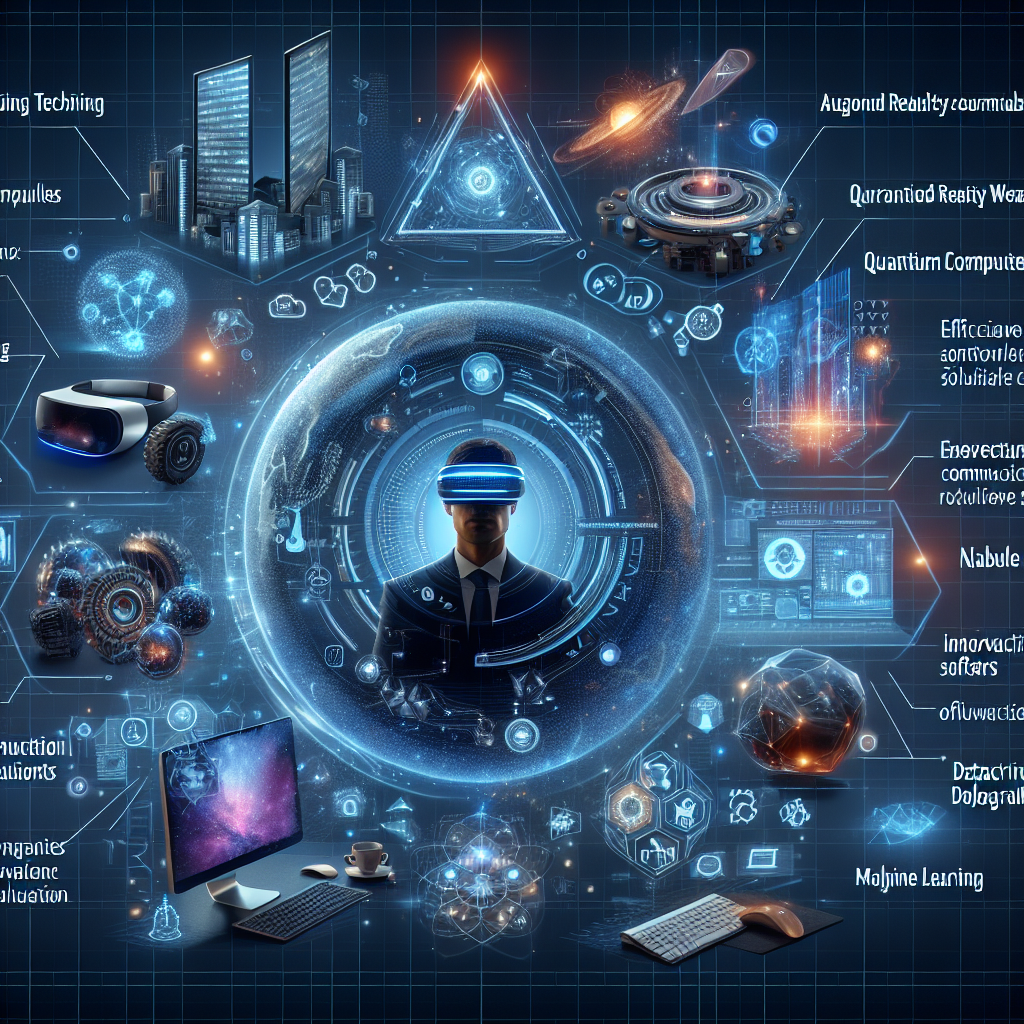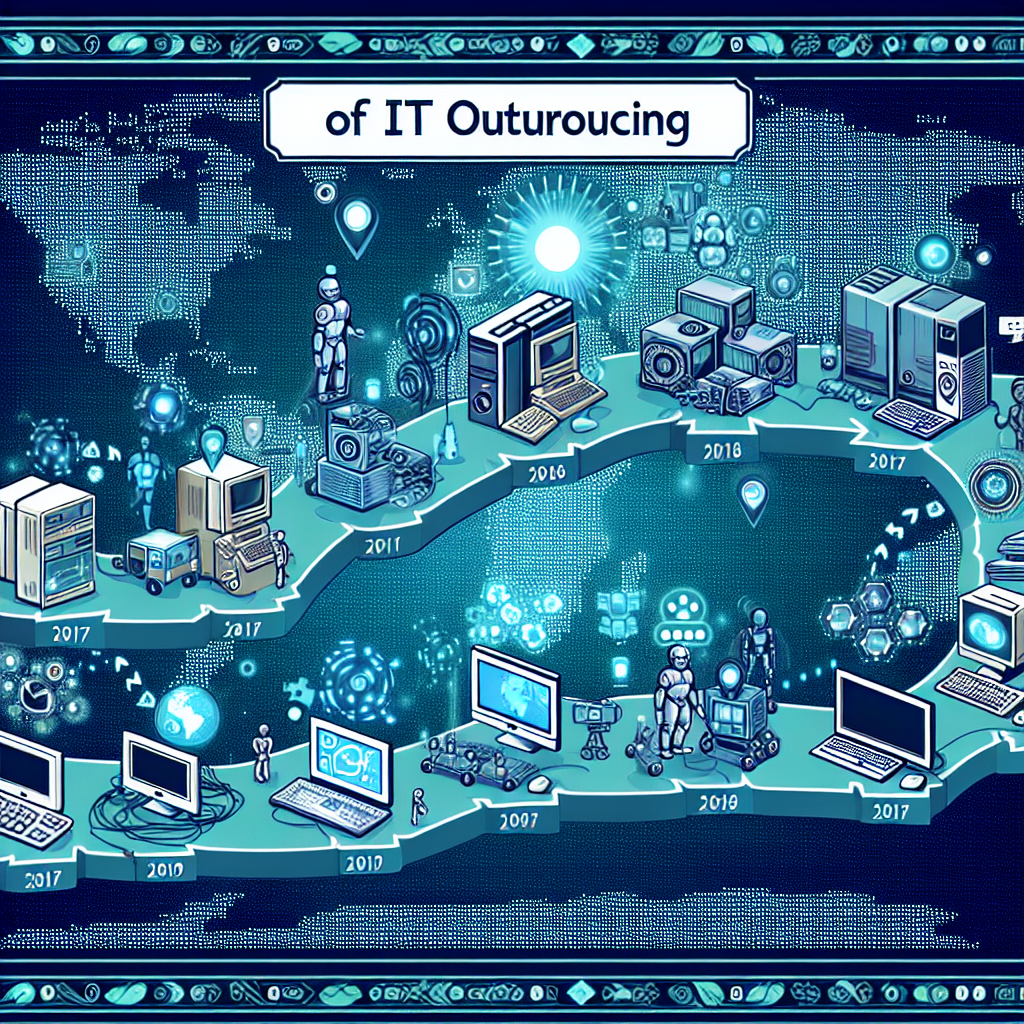Your cart is currently empty!
Tag: Trends

The Top Cloud Computing Trends to Watch in 2021
Cloud computing has become an integral part of modern business operations, enabling organizations to store, process, and access data and applications over the internet. As we enter 2021, several trends are shaping the cloud computing landscape and will continue to do so throughout the year. Here are the top cloud computing trends to watch in 2021:1. Multi-cloud and hybrid cloud adoption: Organizations are increasingly adopting multi-cloud and hybrid cloud strategies to leverage the benefits of different cloud providers and deployment models. This trend is driven by the need for flexibility, scalability, and cost optimization. In 2021, we can expect to see more companies embracing multi-cloud and hybrid cloud solutions to meet their specific business requirements.
2. Edge computing: Edge computing brings computation and data storage closer to the location where it is needed, reducing latency and improving performance. With the proliferation of Internet of Things (IoT) devices and the increasing demand for real-time data processing, edge computing is gaining traction in 2021. Cloud providers are offering edge computing solutions to help organizations deliver low-latency applications and services to their users.
3. Serverless computing: Serverless computing allows developers to build and run applications without managing servers. This trend is gaining popularity in 2021 as organizations look to reduce operational overhead and improve scalability. Serverless computing enables developers to focus on writing code and delivering value to their customers without worrying about infrastructure management.
4. AI and machine learning integration: Cloud providers are integrating artificial intelligence (AI) and machine learning (ML) capabilities into their platforms to help organizations build intelligent applications. In 2021, we can expect to see more businesses leveraging AI and ML services in the cloud to drive innovation, improve decision-making, and enhance customer experiences.
5. Security and compliance: With the increasing number of cyber threats and data breaches, security and compliance are top priorities for organizations moving to the cloud. Cloud providers are investing in advanced security technologies and compliance certifications to protect their customers’ data and ensure regulatory compliance. In 2021, we can expect to see a continued focus on security and compliance in the cloud computing industry.
6. Sustainability: As the demand for cloud services continues to grow, there is a growing focus on sustainability and environmental impact. Cloud providers are investing in renewable energy sources and energy-efficient infrastructure to reduce their carbon footprint. In 2021, we can expect to see more companies choosing cloud providers that prioritize sustainability and environmental responsibility.
Overall, these trends are shaping the future of cloud computing and will continue to drive innovation and transformation in 2021. Organizations that embrace these trends and leverage cloud technologies effectively will be well-positioned to succeed in the digital economy.

Top Trends in IT Outsourcing for 2021 and Beyond
As businesses continue to navigate the challenges posed by the ongoing global pandemic, IT outsourcing has become an increasingly popular solution for companies looking to streamline operations, reduce costs, and access specialized expertise. In 2021 and beyond, several key trends are shaping the IT outsourcing industry, driving innovation and transformation. Here are the top trends to watch for in IT outsourcing in the coming years:1. Increased focus on digital transformation: The rapid shift to remote work and digital business models has accelerated the need for companies to digitize their operations and customer interactions. As a result, IT outsourcing providers are increasingly being called upon to help organizations drive digital transformation initiatives, such as migrating to the cloud, implementing AI and automation technologies, and enhancing cybersecurity measures.
2. Rise of hybrid and multi-cloud environments: Many organizations are adopting a hybrid or multi-cloud approach to IT infrastructure, leveraging a combination of public and private cloud services to optimize performance, scalability, and cost-efficiency. IT outsourcing providers are playing a key role in helping companies design, implement, and manage complex cloud environments, ensuring seamless integration and interoperability across platforms.
3. Focus on cybersecurity and data protection: With the proliferation of cyber threats and data breaches, organizations are prioritizing cybersecurity and data protection more than ever before. IT outsourcing providers are increasingly offering specialized security services, such as managed security operations, threat intelligence, and incident response, to help companies safeguard their digital assets and comply with regulatory requirements.
4. Emphasis on agility and flexibility: The uncertainty and volatility brought about by the pandemic have underscored the importance of agility and flexibility in IT outsourcing engagements. Companies are seeking providers that can quickly adapt to changing business requirements, scale resources up or down as needed, and deliver innovative solutions in a timely manner. Agile methodologies, DevOps practices, and outcome-based pricing models are becoming increasingly popular in the IT outsourcing industry.
5. Growing demand for specialized skills and expertise: As technology continues to evolve at a rapid pace, organizations are looking to IT outsourcing providers to help them access specialized skills and expertise in emerging technologies such as AI, machine learning, blockchain, and IoT. IT outsourcing providers are investing in training and upskilling their workforce to meet this demand, while also leveraging partnerships and alliances with technology vendors to bring cutting-edge solutions to market.
Overall, the IT outsourcing industry is poised for significant growth and innovation in the coming years, driven by the increasing adoption of digital technologies, the rise of hybrid and multi-cloud environments, the focus on cybersecurity and data protection, the emphasis on agility and flexibility, and the growing demand for specialized skills and expertise. Companies that embrace these trends and partner with the right IT outsourcing providers will be well-positioned to navigate the challenges and seize the opportunities of the digital age.

The Future of IT Infrastructure Management: Trends to Watch
In today’s fast-paced and ever-evolving digital landscape, IT infrastructure management has become more crucial than ever. With the increasing reliance on technology to drive business operations, companies are constantly looking for ways to optimize their IT infrastructure to ensure seamless operations and stay ahead of the competition.As we look towards the future of IT infrastructure management, there are several key trends that organizations should keep an eye on. These trends are shaping the way businesses manage their IT infrastructure and are set to have a significant impact on the industry in the coming years.
One of the key trends to watch is the rise of cloud computing. Cloud computing has revolutionized the way businesses manage their IT infrastructure by providing a scalable and cost-effective solution for storing and accessing data. With the increasing adoption of cloud services, organizations are moving away from traditional on-premise infrastructure towards cloud-based solutions.
Another trend to watch is the increasing focus on automation and artificial intelligence in IT infrastructure management. Automation tools are being used to streamline IT operations and reduce manual intervention, while AI technologies are being leveraged to predict and prevent potential IT issues before they arise. This shift towards automation and AI is helping organizations to improve efficiency, reduce costs, and enhance overall performance.
Security is also a key trend in IT infrastructure management, as organizations are facing an increasing number of cyber threats and attacks. With the growing complexity of IT infrastructure, it is more important than ever for businesses to invest in robust security measures to protect their data and systems. This includes implementing advanced security protocols, conducting regular security audits, and staying ahead of emerging threats.
Lastly, the trend towards hybrid IT environments is also worth watching. As organizations strive to balance the benefits of cloud computing with the need for on-premise infrastructure, many are opting for hybrid IT solutions that combine the best of both worlds. This approach allows businesses to leverage the scalability and flexibility of the cloud, while still maintaining control over critical data and applications.
In conclusion, the future of IT infrastructure management is evolving rapidly, driven by advancements in technology and changing business needs. By staying informed about these key trends and embracing new technologies, organizations can position themselves for success in the digital age. As we look towards the future, it is clear that IT infrastructure management will continue to play a critical role in driving business growth and innovation.

Top Trends in IT Consulting for 2021 and Beyond
As technology continues to advance at a rapid pace, the role of IT consulting has become increasingly important for businesses looking to stay ahead of the curve. With the COVID-19 pandemic accelerating digital transformation initiatives, IT consulting firms are now more in demand than ever before. In this article, we will explore the top trends in IT consulting for 2021 and beyond.1. Cloud Computing: Cloud computing has been a dominant trend in the IT industry for several years, and it shows no signs of slowing down. IT consulting firms are helping businesses migrate their operations to the cloud, enabling greater flexibility, scalability, and cost savings. As more companies embrace remote work models, the need for cloud-based solutions will only continue to grow.
2. Cybersecurity: With the rise of cyber threats and data breaches, cybersecurity has become a top priority for businesses of all sizes. IT consulting firms are helping companies develop robust cybersecurity strategies to protect their sensitive information and mitigate risks. In 2021 and beyond, we can expect to see an increased focus on proactive cybersecurity measures, such as threat intelligence and security awareness training.
3. Artificial Intelligence and Machine Learning: AI and machine learning technologies are transforming industries across the board, from healthcare to finance to retail. IT consulting firms are helping businesses harness the power of AI to streamline processes, improve decision-making, and drive innovation. In the coming years, we can expect to see more businesses investing in AI and machine learning solutions to gain a competitive edge.
4. Internet of Things (IoT): The IoT market is projected to reach $1.6 trillion by 2025, creating new opportunities for businesses to connect and optimize devices and systems. IT consulting firms are helping companies integrate IoT technologies into their operations, enabling them to collect and analyze data in real-time. As IoT continues to evolve, IT consulting firms will play a crucial role in helping businesses navigate this complex and rapidly changing landscape.
5. Digital Transformation: The COVID-19 pandemic has accelerated digital transformation initiatives across industries, as businesses seek to adapt to the new normal. IT consulting firms are helping companies digitize their operations, improve customer experiences, and drive innovation. In 2021 and beyond, we can expect to see more businesses investing in digital transformation projects to stay competitive in a rapidly evolving marketplace.
In conclusion, the field of IT consulting is constantly evolving to meet the changing needs of businesses in a digital-first world. By staying abreast of the top trends in IT consulting, businesses can leverage the expertise of consulting firms to drive innovation, improve efficiency, and achieve their strategic goals. As we look towards the future, it is clear that IT consulting will continue to play a vital role in helping businesses navigate the complexities of the digital landscape.

Key Trends in Network Management for the Future
Network management is an essential component of any organization’s IT infrastructure, ensuring that networks are running smoothly and efficiently. With the rapid evolution of technology, network management has also been evolving to keep up with the changing landscape. As we look towards the future, there are several key trends that are shaping the future of network management.One of the key trends in network management for the future is the increasing adoption of software-defined networking (SDN). SDN is a technology that allows for the centralized control of network infrastructure through software, making it easier to manage and configure networks. This technology provides greater flexibility and agility in network management, allowing organizations to adapt quickly to changing business needs.
Another trend that is shaping the future of network management is the rise of artificial intelligence (AI) and machine learning. These technologies allow for the automation of routine network management tasks, such as monitoring performance, identifying anomalies, and troubleshooting issues. By using AI and machine learning, organizations can improve the efficiency and effectiveness of their network management processes.
Cloud computing is also playing a significant role in the future of network management. With the increasing adoption of cloud services, organizations are faced with the challenge of managing networks that span both on-premises and cloud environments. Network management solutions that can seamlessly integrate with cloud services will be essential for organizations to effectively manage their networks in the future.
Security is another key trend in network management for the future. As cyber threats continue to evolve and become more sophisticated, organizations need to prioritize network security to protect their data and infrastructure. Network management solutions that incorporate advanced security features, such as threat detection and encryption, will be crucial for organizations to safeguard their networks from cyber attacks.
In conclusion, the future of network management is being shaped by several key trends, including the adoption of software-defined networking, the rise of artificial intelligence and machine learning, the increasing use of cloud computing, and the emphasis on network security. Organizations that embrace these trends and invest in advanced network management solutions will be better equipped to navigate the complexities of managing modern networks and ensure the smooth operation of their IT infrastructure.

The Top Trends in Managed Service Providers for 2021
As technology continues to advance at a rapid pace, managed service providers (MSPs) are constantly evolving to meet the changing needs of their clients. In 2021, there are several key trends that are shaping the industry and driving innovation in the managed services space.One of the top trends in managed service providers for 2021 is the increasing demand for cloud services. With more businesses moving their operations to the cloud, MSPs are seeing a growing need for services that can help manage and optimize cloud environments. This includes services such as cloud migration, cloud security, and cloud monitoring, all of which are becoming essential for businesses looking to take full advantage of the benefits of the cloud.
Another important trend in the MSP space is the rise of cybersecurity services. With cyber threats becoming more sophisticated and prevalent, businesses are looking for managed service providers that can help them protect their data and systems from potential attacks. MSPs are offering a range of cybersecurity services, including threat detection and response, security assessments, and security awareness training, to help businesses stay ahead of evolving cyber threats.
Artificial intelligence (AI) and machine learning are also playing a key role in shaping the future of managed services. MSPs are increasingly using AI and machine learning technologies to automate routine tasks, improve efficiency, and provide more proactive and predictive services to their clients. These technologies are enabling MSPs to deliver faster response times, better performance, and greater insights into their clients’ IT environments.
Finally, the COVID-19 pandemic has accelerated the adoption of remote work and virtual collaboration tools, leading to a greater demand for managed services that can support remote workforces. MSPs are now offering services such as remote desktop support, virtual private networks (VPNs), and collaboration tools to help businesses adapt to the new normal of remote work. Additionally, MSPs are providing services that can help businesses secure and manage their remote workforce, ensuring that employees can work safely and securely from anywhere.
In conclusion, the top trends in managed service providers for 2021 are driven by the increasing demand for cloud services, cybersecurity services, AI and machine learning technologies, and services that support remote work. As businesses continue to embrace digital transformation and rely more heavily on technology to drive their operations, MSPs will play a crucial role in helping them navigate the complexities of the digital landscape and achieve their business goals. By staying ahead of these trends and embracing innovation, MSPs can position themselves as trusted partners to their clients and drive success in the ever-evolving world of IT services.

Emerging Trends in IT Infrastructure Management
Emerging Trends in IT Infrastructure ManagementIT infrastructure management is constantly evolving as technology advances and organizations strive to keep up with the ever-changing digital landscape. In order to stay competitive and efficient, businesses must adopt new trends and strategies to effectively manage their IT infrastructure. Here are some emerging trends that are shaping the future of IT infrastructure management:
1. Cloud Computing: One of the biggest trends in IT infrastructure management is the shift towards cloud computing. Cloud services offer a flexible and scalable solution for storing and managing data, applications, and infrastructure. Organizations are increasingly moving towards cloud-based solutions to reduce costs, improve agility, and enhance security.
2. Automation and AI: Automation and artificial intelligence are revolutionizing IT infrastructure management by streamlining processes and reducing the need for manual intervention. AI-powered tools can analyze data, predict potential issues, and automate routine tasks, allowing IT teams to focus on more strategic initiatives.
3. Edge Computing: With the rise of IoT devices and the need for real-time data processing, edge computing has become a key trend in IT infrastructure management. Edge computing involves processing data closer to the source, reducing latency and improving performance for critical applications.
4. Software-Defined Infrastructure: Software-defined infrastructure allows organizations to manage their IT resources through software rather than hardware. This approach provides greater flexibility, scalability, and agility, enabling businesses to adapt to changing demands more easily.
5. DevOps and Agile Practices: DevOps and Agile methodologies are becoming increasingly popular in IT infrastructure management, as they promote collaboration, automation, and continuous integration and deployment. By breaking down silos between development and operations teams, organizations can achieve faster time-to-market and improved efficiency.
6. Cybersecurity: As cyber threats continue to evolve and grow in complexity, cybersecurity has become a top priority for IT infrastructure management. Organizations are investing in advanced security solutions to protect their data, applications, and infrastructure from cyber attacks.
7. Hybrid IT: Many organizations are adopting a hybrid IT approach, combining on-premises infrastructure with cloud services to achieve a balance between performance, security, and cost. Hybrid IT allows businesses to leverage the benefits of both environments while meeting their specific business needs.
In conclusion, IT infrastructure management is undergoing significant changes as new technologies and trends emerge. By staying current with these emerging trends and adopting innovative strategies, organizations can optimize their IT infrastructure to drive growth, enhance efficiency, and stay competitive in today’s digital age.

The Future of IT Solutions: Innovations and Trends
The Future of IT Solutions: Innovations and TrendsThe world of IT solutions is constantly evolving, with new technologies and innovations changing the way we work and live. As we look towards the future, it’s clear that the industry is set to undergo some major transformations. From AI to blockchain, here are some of the key trends and innovations that will shape the future of IT solutions.
Artificial Intelligence (AI) is one of the most exciting developments in the world of IT solutions. With the ability to analyze data, learn from patterns, and make decisions on its own, AI has the potential to revolutionize the way we work. From chatbots that can provide customer service to predictive analytics that can help businesses make better decisions, AI is already being used in a wide range of applications. In the future, we can expect to see even more sophisticated AI algorithms that can handle more complex tasks and provide even greater insights.
Another key trend in IT solutions is the rise of blockchain technology. Originally developed as the underlying technology behind cryptocurrencies like Bitcoin, blockchain has since been adopted by a wide range of industries for its ability to provide secure, transparent, and decentralized transactions. In the future, we can expect to see blockchain being used in everything from supply chain management to healthcare records, as companies look for ways to improve security and efficiency in their operations.
Cloud computing is another major trend that is set to shape the future of IT solutions. With the ability to store and access data and applications over the internet, cloud computing has already transformed the way we work. In the future, we can expect to see even greater adoption of cloud computing as companies look for ways to increase flexibility, scalability, and cost-effectiveness in their IT operations.
Finally, cybersecurity is an increasingly important trend in the world of IT solutions. With cyber threats on the rise, companies are looking for ways to protect their data and systems from attacks. In the future, we can expect to see even greater emphasis on cybersecurity, with companies investing in technologies like advanced encryption, secure authentication, and threat detection to keep their systems safe.
Overall, the future of IT solutions is set to be an exciting one, with new technologies and innovations reshaping the way we work and live. From AI to blockchain, cloud computing to cybersecurity, there are plenty of trends to watch out for in the coming years. By staying ahead of the curve and embracing these innovations, companies can position themselves for success in the ever-changing world of IT solutions.

The Future of IT Consulting: Trends and Predictions
The IT consulting industry is constantly evolving, and with the rapid advancement of technology, it is important to stay ahead of the curve in order to remain competitive. As we look towards the future of IT consulting, there are several trends and predictions that are likely to shape the industry in the coming years.One of the key trends that we can expect to see in the future of IT consulting is the increasing reliance on artificial intelligence and machine learning. These technologies have the potential to revolutionize the way that businesses operate, by automating repetitive tasks and providing valuable insights into data. IT consultants who are able to harness the power of AI and machine learning will be in high demand, as businesses look for ways to streamline their operations and stay ahead of the competition.
Another trend that is likely to shape the future of IT consulting is the shift towards cloud computing. As more and more businesses move their operations to the cloud, IT consultants will need to have a deep understanding of cloud technologies in order to help their clients make the transition smoothly. This includes expertise in areas such as cloud security, data migration, and optimizing cloud infrastructure for performance and cost efficiency.
In addition to AI, machine learning, and cloud computing, cybersecurity will continue to be a top priority for businesses in the future. With cyber threats becoming increasingly sophisticated, IT consultants will need to stay up-to-date on the latest security measures and best practices in order to protect their clients’ data and systems. This may involve implementing advanced security technologies such as blockchain, biometrics, and advanced encryption methods.
As the IT consulting industry continues to evolve, we can also expect to see a greater emphasis on specialization. With technology becoming more complex and diverse, IT consultants will need to develop expertise in specific areas in order to provide the most value to their clients. This may involve focusing on niche markets such as healthcare IT, fintech, or e-commerce, or specializing in specific technologies such as IoT, big data, or cybersecurity.
Overall, the future of IT consulting looks bright, with plenty of opportunities for growth and innovation. By staying ahead of the latest trends and technologies, IT consultants can position themselves as trusted advisors to their clients, helping them navigate the complex world of technology and achieve their business goals. It will be exciting to see how the industry continues to evolve in the coming years, and the new opportunities that will arise for IT consultants as a result.

The Evolution of IT Outsourcing: Trends and Future Outlook
In recent years, IT outsourcing has emerged as a popular and effective strategy for businesses looking to streamline their operations, reduce costs, and access specialized expertise. Over the years, this industry has evolved significantly, adapting to technological advancements and changing business landscapes. In this article, we will explore the trends that have shaped the evolution of IT outsourcing and provide insights into its future outlook.The Evolution of IT Outsourcing:
1. Shift from cost savings to strategic partnerships: Initially, IT outsourcing was primarily driven by cost savings. However, as businesses began to realize the strategic value of outsourcing, the focus shifted towards building long-term partnerships with service providers. Companies now look for partners who can not only provide cost-effective solutions but also help them achieve their business goals and drive innovation.
2. Rise of cloud computing: The advent of cloud computing has revolutionized the IT outsourcing industry. Cloud-based services offer scalability, flexibility, and cost-effectiveness, making them an attractive option for businesses of all sizes. As a result, many IT outsourcing providers have shifted their focus towards offering cloud-based solutions to meet the growing demand.
3. Emphasis on cybersecurity: With the increasing frequency and sophistication of cyber threats, cybersecurity has become a top priority for businesses. As a result, IT outsourcing providers are now offering specialized security services to help companies protect their data and infrastructure. This trend is expected to continue as businesses look for ways to mitigate the risks associated with cyber attacks.
4. Automation and artificial intelligence: The rise of automation and artificial intelligence (AI) has had a significant impact on the IT outsourcing industry. Many service providers are now incorporating AI-driven solutions to automate repetitive tasks, improve efficiency, and enhance the customer experience. This trend is expected to continue as businesses look for ways to leverage technology to drive innovation and stay competitive in the market.
Future Outlook:
Looking ahead, the future of IT outsourcing looks promising, with several trends shaping the industry. One of the key trends that is expected to continue is the rise of specialized services, particularly in areas such as cybersecurity, cloud computing, and AI. Companies will increasingly look for providers who can offer expertise in these areas to help them address their unique challenges and achieve their business objectives.
Another trend that is likely to shape the future of IT outsourcing is the focus on agility and flexibility. As businesses continue to navigate rapidly changing market conditions and technological advancements, they will look for partners who can adapt quickly to their evolving needs and provide scalable solutions that can grow with their business.
Overall, the evolution of IT outsourcing has been marked by a shift towards strategic partnerships, the rise of cloud computing, cybersecurity, automation, and AI. As businesses continue to embrace these trends and look for innovative solutions to drive growth and competitive advantage, IT outsourcing will play an increasingly important role in helping them achieve their goals.
